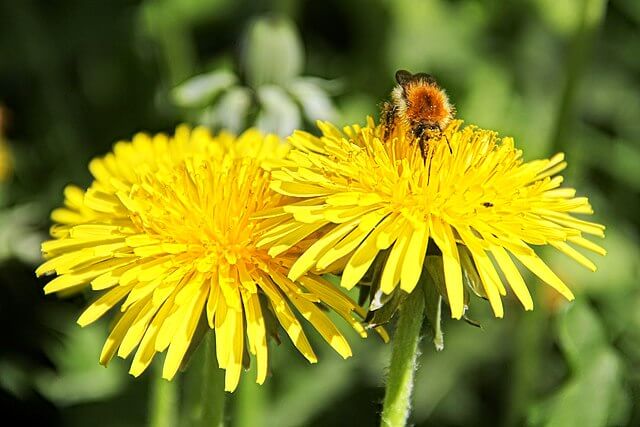
A new study focused on sunflower farms reveals that while mass-blooming monoculture crop fields do not diminish the microbial diversity within a bee’s gut, they do exacerbate the spread of infectious parasites.
The research underscores the potential negative impacts of commercial agriculture, which predominantly involves monoculture practices, on bee health. However, the introduction of strips of diverse vegetation alongside crops could provide alternative resources that help shield pollinators from infectious diseases.
When bees forage from flowers, they engage in an exchange of microbes through feeding and excretion, which could potentially alter their gut microbiomes. These microbiomes are vital for their digestion and overall health.
Given the high nectar concentration in monoculture fields like those of sunflowers, these settings can attract large numbers of pollinators, potentially increasing microbial transmission rates.
The research team, led by Lauren Ponisio, an assistant professor of biology at the University of Oregon, explored this phenomenon by studying sunflower fields in Yolo County, Northern California. These fields, during their peak bloom periods, draw various bee species and serve as centres for the exchange of pollen, nectar, waste, beneficial microbes, and parasites.
“These fields are definitely interesting places to work,” says Gordon Smith, a former postdoctoral researcher. “It’s you, your big sun hat, and your insect net, and you’re trying to take a look at what kinds of bees are visiting these plants.”
The spread of disease is a major factor in the decline of pollinator populations, an issue not as well-studied in bees as it is in humans.
“We know from all the work in human gut microbiomes that the composition, the relative abundance of different microbial species, alone can have large impacts on things like your mood, food digestion and food preferences,” he says. “There are a lot of nuanced effects on your behavior just based on what’s living in your gut. But what are those more subtle effects in bees and where do their microbes come from?”
To investigate, the researchers collected pollen from bees’ legs and analysed it alongside their gut microbiomes to see if there were any correlations that suggested transmission via flowers.
Results indicated that the types of flowers bees visited could moderately predict the microbial communities within their guts. This finding led researchers to consider if bees, by visiting the same type of monoculture flowers, might be circulating identical microbes, potentially reducing their microbial diversity.
Surprisingly, despite the high potential for microbial exchange, the bees’ microbiomes remained diverse.
“It’s a hopeful story for bees living in these industrial agricultural systems because they still seem to be able to acquire the microbes they need from different places,” Ponisio says. “They don’t just lose all their diversity due to mass-blooming crops.”
This suggests that bees might possess internal mechanisms that filter and maintain microbial diversity, preventing significant alterations in their gut bacterial composition.
Further investigations by Ponisio’s team revealed that while sunflower monocultures did not majorly influence the overall microbial diversity, they did increase the spread and prevalence of specific infectious parasites. This negative effect was mitigated when diverse floral resources were available nearby.
The study highlights the importance of integrating biodiversity into agricultural practices. Installing hedgerows or strips of diverse vegetation not only diversifies the landscape but also offers a refuge from diseases for pollinators.
Ponisio’s ongoing research aims to enhance the compatibility of agriculture with wildlife needs through land restoration and the exploration of diverse ecological systems, such as high-elevation meadows.
“Just as we need to work to preserve the habitats bees live in,” she says, “we also need to work to preserve the habitats living within bees.”
——————————————————————————
At Natural World Fund, we are passionate about rewilding the UK to stop the decline in our wildlife.
Donate now and join in the solution!

